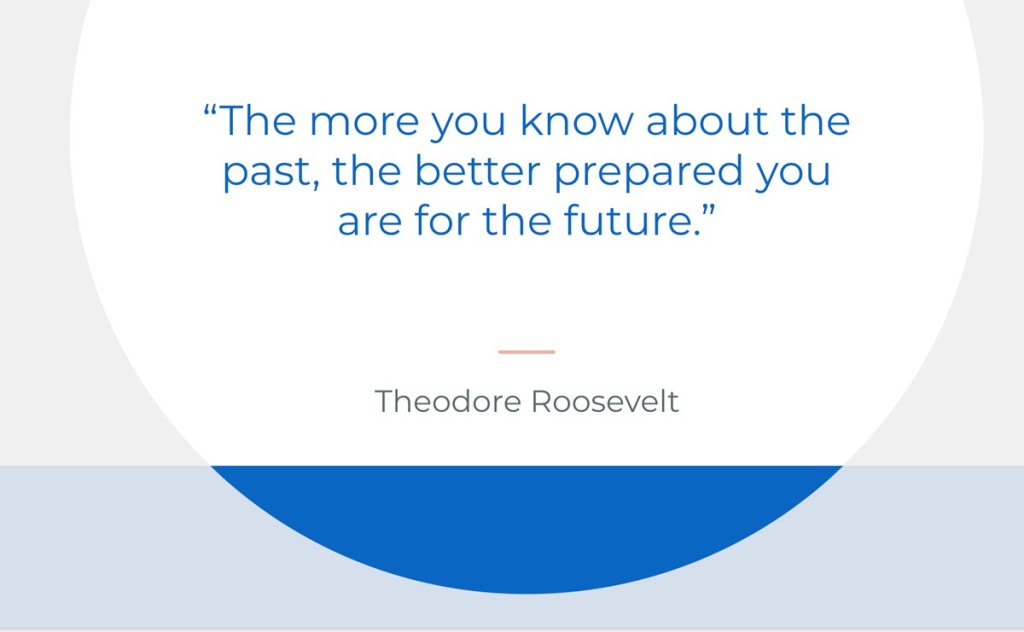6 Things Recruiters Can Learn From Past Recessions
Most experts agree we’re in a recession. COVID-19 has slowed the economy just like the mortgage crisis did in 2007 and the dot-com bust did in 2001. During those times, like today, many organizations laid off workers, cut salaries, and froze hiring — whatever it took to weather the financial storm.
For recruiters, these times can be unsettling. Slower hiring can make you feel less secure in your job. So what can you do to weather a downturn? While there’s no playbook, we can look to past recessions for lessons and to the recruiting leaders who’ve survived them.
Here’s what history can teach us:
1. Keep working your recruiting muscle
Research shows that companies that cut too deep and fast during a recession don’t fare as well as those that move at a more calculated pace. Teams will be forced to better prioritize reqs, says founder of Recruiting Toolbox, John Vlastica, so this is the time to think more critically and more frequently with your business partners.
Keep your contacts warm even without jobs to fill. Make those calls, write those InMails, have those virtual meet-ups. “Keep building a deep network in a niche area,” advises industry expert, Lou Adler. “People are always willing to give referrals in downturns, so it's a great time to be proactive.” Lou adds that being a subject-matter expert is key, since people are more willing to help recruiters who are credible and know their stuff.
2. Scoop the ‘new’ top talent
In a recession, you’ll likely have more choice of top applicants. Many businesses have had to part with great talent, so this may be your chance to bring them on. That was the case in 2008, when companies that invested most heavily in A-talent fared better.
Remember that the pandemic is affecting industries very differently. Find out if and where transferable skills from harder-hit industries could apply to yours. Tourism, for example, has had to let go of many talented professionals. That former cruise director could be your food store’s next sales manager. That newly laid-off travel agent may have just the right skills for your hospital receptionist role.
Also prepare for new dynamics when the economy recovers. Some jobs may no longer exist, and some jobs may but skilled workers may not be as available. Consider the construction industry in 2009. During that recession top-skilled workers left construction, so there weren’t enough skilled workers when the industry started rebounding. Recruiters played a critical role in matching talent in this new landscape. Whole new categories of jobs and skills may be needed, along with recruiters to guide them. One example already? Contact tracers.
3. Go for the gig workers
Over the last decade, the gig economy has grown mostly in areas like food delivery and personal tasks. But knowledge-based work (e.g., engineering, accounting) hasn’t played as big a role, largely due to cultural and organizational barriers.
The recent surge in remote work, however, has removed many of those barriers, making it much more feasible for an organization to hire a software engineer for a three-month gig, for example. In fact, Google now employs more gig workers than full-time employees. The flexibility and cost-savings that come with contractors and temps is a real advantage, and with the uncertainty around the pandemic, professionals may be especially open to gig opportunities.
4. Show your agility
If you can quickly and easily pivot your skills to work elsewhere in HR or another function, you’re that much more valuable. John Vlastica says that during these times especially, “You need to make yourself visibly valuable. Align directly to business-facing, critical work — not just projects that only benefit HR.”
Consider how you could use your skills to improve things like retention or employer brand. Offer a plan for treating laid-off workers, for example, harnessing what you know about emotions and how they directly impact your reputation and value as a company. Don’t forget to invest in your own development too. Consult these 7 skills that will help recruiters.
5. Recruit in another industry
Like past recessions, this downturn isn’t affecting all recruiters the same way. Some in healthcare, for example, have never been busier as the demand for frontline workers is up. Historically, the most economically resilient industries have been healthcare, education, government, food manufacturing, food stores, and discount stores. Our recent analysis shows similar top jobs in demand, and the companies with the most openings.
If you can hire in these categories, you’ll boost your job security. You likely already have the technical and hard skills needed to be successful, but building relationships and becoming a subject-matter expert in a different area will take time. If you’re thinking long-term about your career, pivoting to a more recession-proof industry now may make sense.
6. Count on positive change, eventually
The 2007-09 recession ignited the gig economy, making employers more accepting of job-hopping and resume gaps. It fueled people analytics and recruiting technology innovation, moving teams away from post-and-pray job boards. It also sparked the Candidate Experience movement, says HR Pro, Tim Sackett. “In prior recessions,” he recalls, “organizations tended to treat candidates poorly. But after 2009, we saw the rise of Candidate Experience. Organizations truly caring about how they treat candidates seems normal now, but it wasn’t back then.”
While it’s too early to say, the rise of remote work could lead to at least one positive change for recruiting — more hiring managers engaging candidates early in the process. Lou Adler, who’s always advocated that hiring managers conduct exploratory phone screens, has seen much more willingness to do so now given social distancing guidelines. While the real benefits of hiring manager phone screens are time-savings, less first-impression bias, and a more high-touch candidate experience, it may be these extreme circumstances that actually change behavior for the better.
The takeaway
As difficult as this time may be, one thing is certain — it will pass. As Lou Adler likes to say about hiring: “What goes down, must go up.” We’ve endured 11 recessions since WWII and every one has passed. Follow these tips for recruiting success now and for when the world recovers.
To receive blog posts like this one straight in your inbox, subscribe to the blog newsletter.
Related articles




